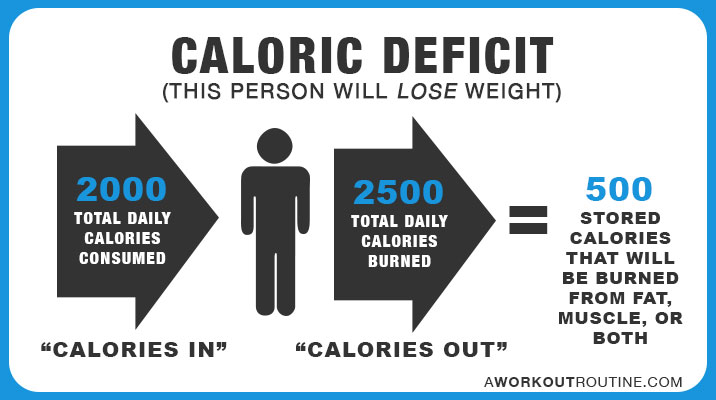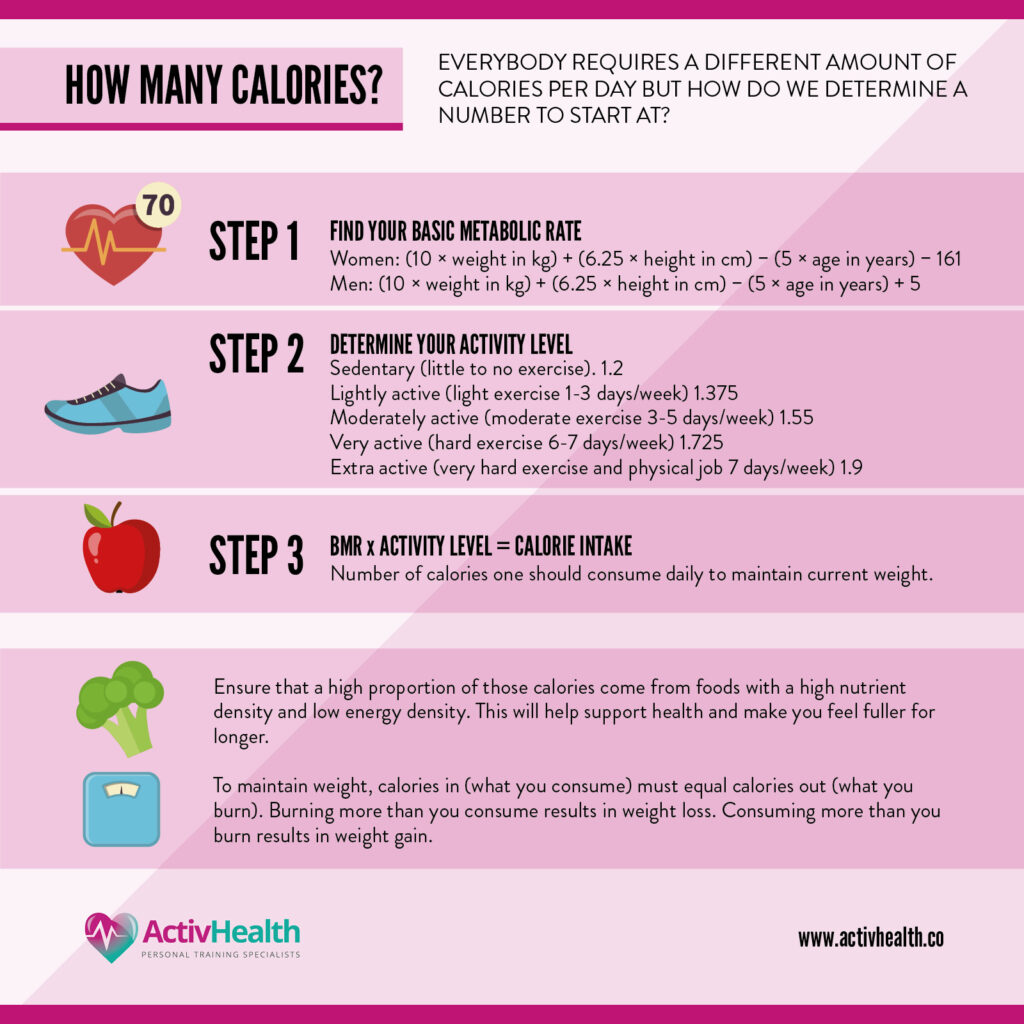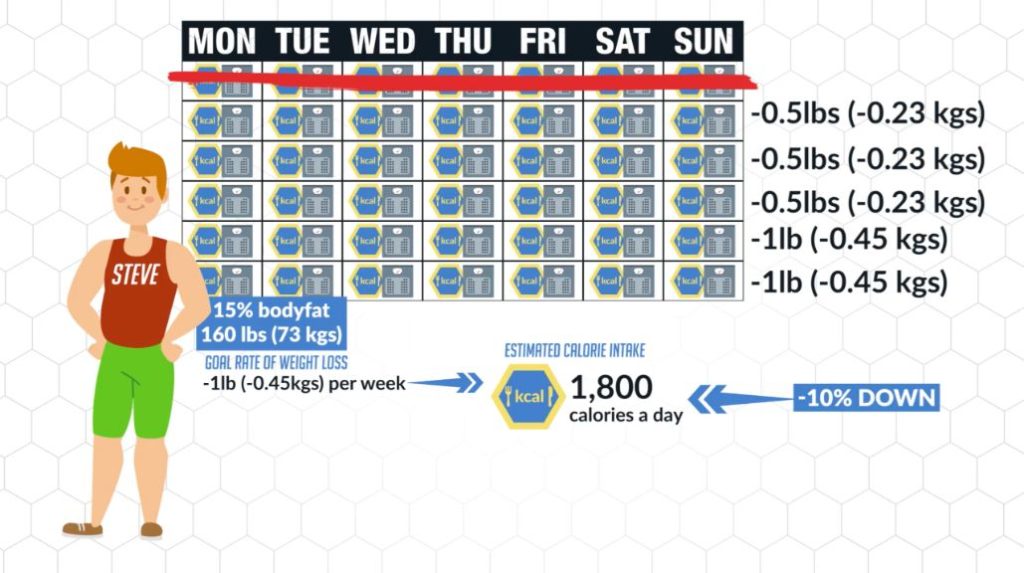Have you ever found yourself wondering just how many calories you should consume to reach your weight loss goals? It’s a common question, and figuring it out can lead to significant changes in your lifestyle, health, and overall well-being. Understanding calories and how they affect your body is crucial for anyone looking to shed some pounds in a healthy, sustainable way.

Unlock the Secret to Rapid Weight Loss – Start Now!
The Basics of Calories
Calories are units of energy that your body uses to function. Every movement you make, from breathing to running, burns calories. Your goal is to create a calorie deficit, which means consuming fewer calories than your body needs to maintain its current weight. Let’s break that down.
What is a Calorie Deficit?
A calorie deficit occurs when the number of calories you consume is less than the number of calories you burn. To lose one pound of fat, you generally need to create a deficit of about 3,500 calories. This means you could aim for a daily deficit of about 500 calories, which can lead to approximately one pound of weight loss per week.
Factors That Influence Your Daily Caloric Needs
Understanding your caloric needs isn’t a one-size-fits-all approach. Several factors will play a significant role in determining how many calories you should eat each day.
1. Age
As you age, your metabolism generally slows down, primarily due to a decrease in muscle mass. Younger individuals typically require more calories as they’re often more active and have a higher metabolic rate.
2. Gender
Men usually burn more calories than women due to a larger muscle mass and different hormonal profiles. This difference can influence your daily calorie requirements significantly.
3. Weight
Typically, heavier individuals burn more calories at rest than lighter ones. As you lose weight, your caloric needs can decrease as well.
4. Height
Your height can influence your caloric needs in that taller individuals often have larger bodies that require more energy to maintain.
5. Activity Level
The most significant factor will be your level of physical activity. If you’re more active, your body requires more calories to sustain that activity. Here’s a quick breakdown of activity levels:
| Activity Level | Description | Multiplier for BMR |
|---|---|---|
| Sedentary | Little to no exercise | BMR x 1.2 |
| Lightly Active | Light exercise/sports 1-3 days a week | BMR x 1.375 |
| Moderately Active | Moderate exercise/sports 3-5 days a week | BMR x 1.55 |
| Very Active | Hard exercise/sports 6-7 days a week | BMR x 1.725 |
| Super Active | Very hard exercise/physical job or training | BMR x 1.9 |
How to Calculate Your Daily Caloric Needs
To determine the number of calories you should consume daily, you can start by calculating your Basal Metabolic Rate (BMR). This calculation estimates the number of calories your body needs at rest to maintain basic functions.
BMR Calculation
One popular way to calculate BMR is using the Mifflin-St Jeor Equation:
-
For men:
( BMR = 10 \times \text + 6.25 \times \text – 5 \times \text + 5 ) -
For women:
( BMR = 10 \times \text + 6.25 \times \text – 5 \times \text – 161 )
Example of BMR Calculation
Let’s say you are a 30-year-old woman who weighs 70 kg and is 165 cm tall. Your BMR would be calculated as follows:
( BMR = 10 \times 70 + 6.25 \times 165 – 5 \times 30 – 161 )
Doing the math:
( BMR = 700 + 1031.25 – 150 – 161 = 1420.25 , \text )
Finding Your Total Daily Energy Expenditure (TDEE)
After calculating your BMR, you will need to factor in your activity level to find your Total Daily Energy Expenditure (TDEE).
Using the earlier activity levels table, if your BMR is 1420.25 and you classify yourself as moderately active:
TDEE = BMR x Activity Multiplier
TDEE = 1420.25 x 1.55 = 2201.39 calories/day
Setting a Caloric Goal for Weight Loss
Once you know your TDEE, it’s time to establish your caloric goal for weight loss. To create that 500-calorie deficit you need for healthy weight loss:
Caloric Goal = TDEE – 500
Caloric Goal = 2201.39 – 500 = 1701.39 calories/day
So, for this example, you should aim for about 1700 calories per day to achieve a steady weight loss pace of around one pound per week.
Adjustments and Flexibility in Your Diet
While the calculations can be beneficial, remember that they are estimates and should be adjusted based on how your body responds over time. Here’s how you can navigate your weight loss journey effectively.
Listening to Your Body
Every person’s body is different. You may find that you need more or fewer calories than your calculations suggest. Pay attention to how you feel with your energy levels, hunger cues, and overall mood. If you’re feeling fatigued or constantly hungry, consider adjusting your calorie intake or the types of food you eat.
Macro Ratios: Balance is Key
When aiming for weight loss, it’s not just about cutting calories; the quality of those calories matters too. Understanding macronutrients (proteins, fats, and carbohydrates) can help you maintain a balanced diet while losing weight.
1. Proteins
Lean protein sources are essential as they help maintain muscle mass during weight loss. Aim for about 15-25% of your total calories from protein.
2. Fats
Healthy fats are vital for hormone production and overall health. Aim for about 20-35% of your calories from fats, focusing on sources like avocados, nuts, and olive oil.
3. Carbohydrates
Most of your caloric intake should come from carbohydrates, which provide energy. Aim for about 45-65% from healthy sources like fruits, vegetables, and whole grains.
An Example of Caloric Division
Let’s say your daily goal is 1700 calories:
| Macronutrient | Percentage (%) | Grams Per Day (approx.) | Calories |
|---|---|---|---|
| Protein | 20% | 85 grams | 340 |
| Fat | 30% | 57 grams | 513 |
| Carbohydrates | 50% | 213 grams | 847 |
| Total | 100% | 1700 |
This balanced approach can support your energy needs while promoting healthy weight loss.

Sustainable Weight Loss Strategies
When it comes to shedding those extra pounds, sustainability is key. Here are some friendly tips to help you stay on track:
Gradual Changes
Instead of overhauling your eating habits overnight, make small adjustments. Swap sugary drinks for water or choose whole grains instead of refined ones. These little changes can add up over time and make the process feel less overwhelming.
Eat Mindfully
Being present during your meals can help you recognize hunger and fullness cues. Try to avoid distractions while eating, such as screens or multitasking. This practice can enhance your satisfaction with meals and prevent overeating.
Keep Yourself Accountable
Consider keeping a food journal or using an app to track your food intake and exercise. Seeing your habits in writing can offer insights and help you stay accountable to your goals.
Find Activities You Enjoy
Exercise doesn’t have to be a chore. Engage in activities you love, whether that’s biking, swimming, dancing, or hiking. This way, staying active becomes a rewarding part of your routine rather than a burden.
Stay Hydrated
Sometimes, thirst is mistaken for hunger. Ensure you drink plenty of water throughout the day to stay hydrated and help manage your hunger levels.
Adjusting Caloric Needs as You Progress
As you begin to lose weight and your body composition changes, you’ll need to re-evaluate your caloric needs. Each time you lose approximately ten percent of your starting weight, consider recalculating your BMR and TDEE to adjust your caloric goal.

Potential Challenges You Might Face
It’s essential to be aware of the obstacles you might encounter during your weight loss journey. Here are a few common challenges and tips on how to navigate them:
Plateauing
You may eventually hit a plateau where your weight loss stalls, and that can be discouraging. Reassess your calorie intake and physical activity levels, and don’t hesitate to adjust if needed.
Emotional Eating
Many people find themselves turning to food for comfort during stressful times. Practicing mindfulness, finding alternative methods for managing stress, and identifying emotional triggers can help combat this tendency.
Social Situations
Eating out or social gatherings can pose challenges to your caloric goals. Do your best to plan ahead, look at nutritional information beforehand, or choose healthier options. It’s crucial to enjoy social occasions without feeling restricted or guilty.
Final Thoughts
Understanding how many calories you should eat to lose weight involves several personal factors, calculations, and ongoing adjustments. By calculating your BMR and TDEE, setting achievable goals, and embracing a balanced diet and lifestyle, you can reach your weight loss aspirations in a healthy way.
Remember, this journey is personal. Focus on sustainability, be patient with yourself, and celebrate your progress along the way. You’re on a path to a healthier you, and that’s something to be proud of!
Unlock the Secret to Rapid Weight Loss – Start Now!
